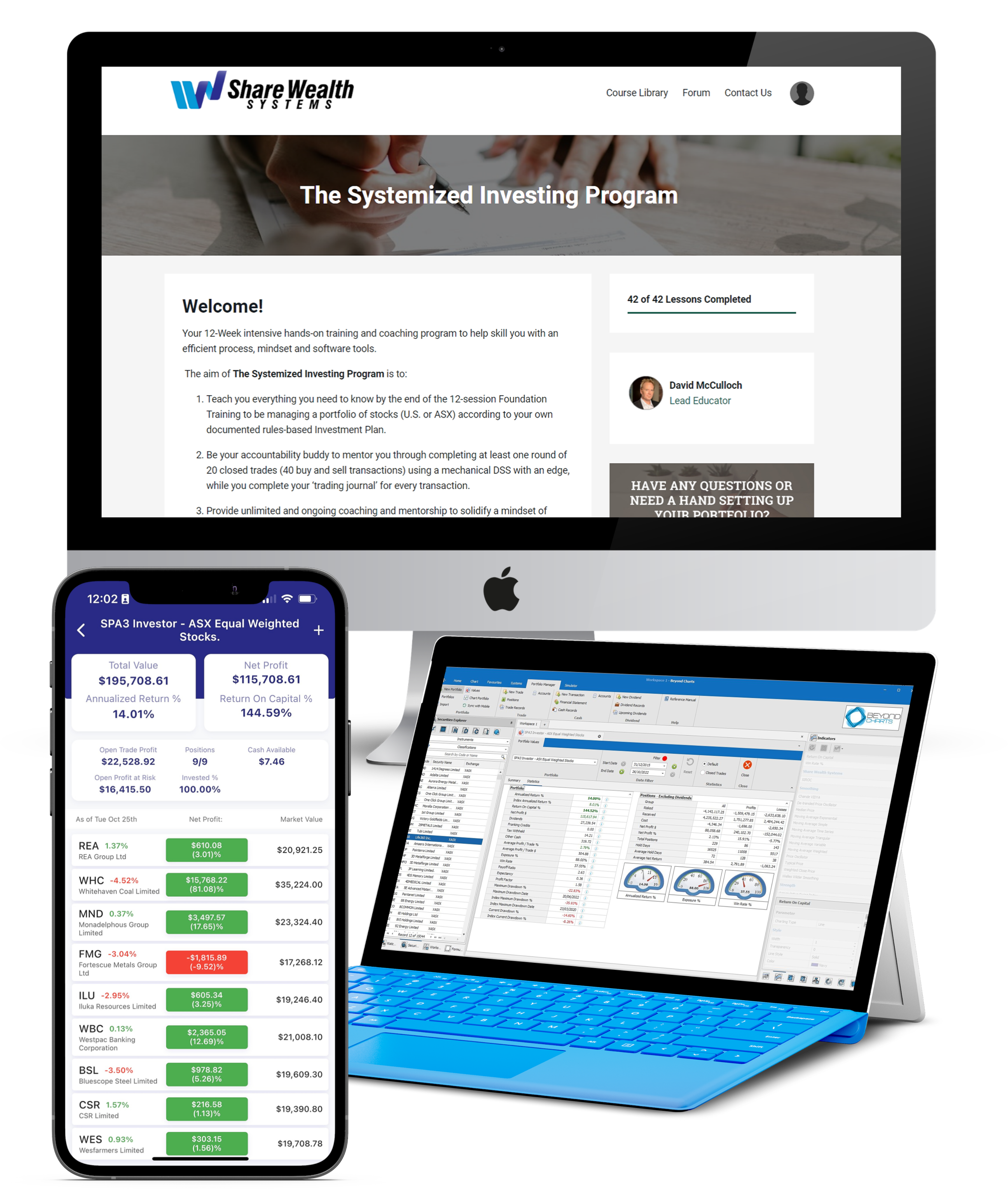As featured in the Herald Sun – Friday 23rd September 2016.
By David McCulloch – Market educator and consultant to Share Wealth Systems
In previous weeks I have discussed the various relationships between confidence and competence. It’s now time for some self reflection on how your current investing process is working, or not. The following are some simple questions to begin with, and your answers can provide a starting point for further learning and growth.
- I enter trades on gut feel. (Y/N)
- I exit trades on gut feel. (Y/N)
- I struggle to hold onto my winning trades. (Y/N)
- I struggle to stick to my pre-determined loss limits. (Y/N)
- I hold onto losing trades hoping they will return to at least break even.(Y/N)
- I tend to chase my losses with more trades, often making things worse. (Y/N)
Ego’s aside, how did many times did you answer yes? One yes is one too many.
Self Analysis: Interpretation.
Investing is a risk management process and as such it is vital that every aspect is measured and quantifiable. Choosing to enter or exit positions on the basis of “gut feel” is very much a random approach. Most people who know no better are random in their decision making process when it comes to the market, and consequently success relies more on luck than anything else. This is not a platform on which to build longer term success.
Having a decision making process that dictates how you manage your positions will greatly help the longer term performance of your strategy. Letting profits run by using a trailing stop for example, has been shown to be invaluable in building a portfolio. Most investors have used a Buy, Hold and Pray approach which has at certain times worked well, eg when the market is rising. The two aspects of that approach, buying and holding certainly have merits, but the praying aspect does not. For each position you are considering, it is vital that you establish first and foremost an exit plan in case things don’t turn out.
Knowing this before entering helps you to quantify the risk, understand what it means and importantly decide if the risk is appropriate. You’ll need to decide your own level of comfort in this regard, but for inexperienced investors, it is much better to start small and work your way up….not the other way around. Remember, all big losses started off as small ones and you simply must stick to your exit rules so that this doesn’t happen to you.
Plain and simple, HOPE is not a strategy. We have no control over what the market does, other than the level of risk we allow to be exposed. If the market moves in the wrong direction, and stops you out, accept it and move on. If you’ve limited the risk you’ll survive for another day. Chasing losses is a mugs game. That’s how casinos make their money, relying on everyone chasing losses and betting more than they can afford to lose. We all know how that ends. Your capital is far too valuable to allow that to occur.
David McCulloch is a market educator and consultant to Share Wealth Systems.


